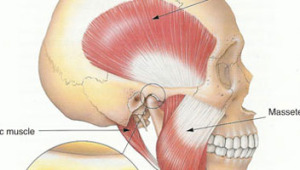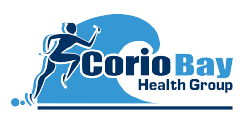
The jaw, or temporomandibular joint (TMJ) is a modified hinge joint sitting just in front of the ear. The right and left joint pivot and glide together to open the jaw for talking and eating.
It has been estimated that in the US alone, up to 60% of people will suffer some form of problem with this joint at some stage, due to factors such as clenching teeth, grinding (bruxism), poor teeth occlusal, as a side effect of major dental work, and degeneration subsequent to previous trauma such as a car accident. The TMJ is also susceptible to injury during sport via a blow to the side of the jaw or chin from a fall, an errant elbow, a squash racquet, or by head-butting an opponent’s knee (just ask Jonathan Brown!).
Trauma can damage the joint surfaces, the internal fibrous cartilage disc, and sprain the surrounding ligaments. Resultant pain, muscle spasm and protection of the joint by limiting mouth opening or chewing on the other side can then cause stiffness in the tissues surrounding the joint, preventing normal function.
TMJ disorders often cause local pain in front of the ear or in the ear itself that might radiate along the upper or lower jaw or up to the temples. Clicking or locking may be present, and symptoms are often worse with yawning, eating hard or chewy foods, and with excessive talking.
It is also common for people to present with ear symptoms (eg. blocked ears, tinnitus, vertigo, impaired hearing), headache around the temples, throat sensations (thickening, soreness, difficulty swallowing), or tooth pain.
A damaged TM joint is not too different from a sprained ankle, and physiotherapists are best placed to assess the muscles and ligaments that control the jaw, and provide remedial treatment and exercises to correct the problem. Pain can be treated with massage, dry needling, heat or ice, ultrasound, analgesics or anti-inflammatory drugs, and relative rest (avoiding hard and chewy foods or wearing a night splint). Physiotherapists can then use manual techniques to restore normal and pain-free opening of the mouth, plus teach you exercises to do at home to stretch the stiff tissues and retrain the muscular control of the jaw. We have physiotherapists at Corio Bay Health Group have extensive experience and post-graduate training in treating this problematic area.
